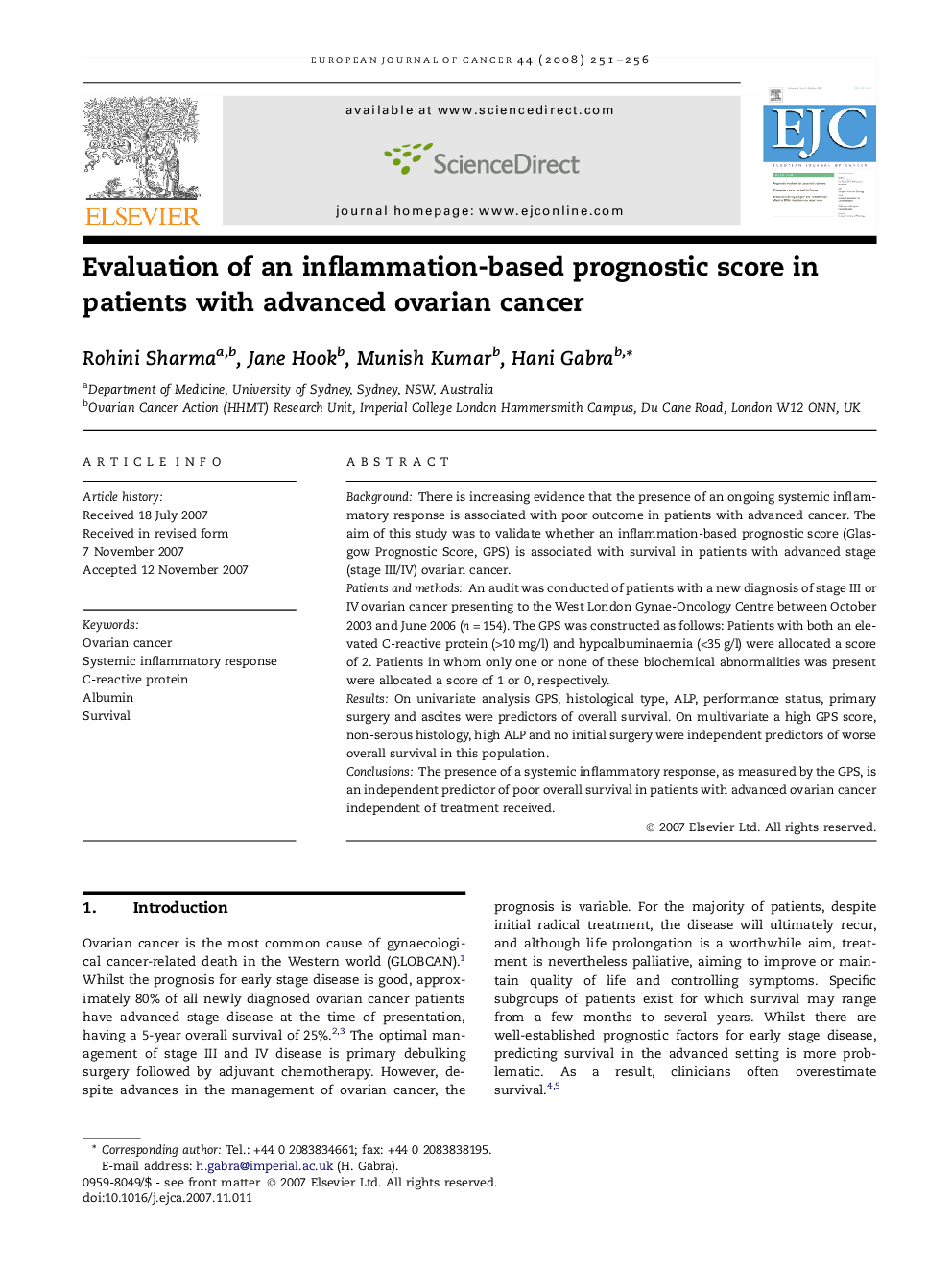| Article ID | Journal | Published Year | Pages | File Type |
|---|---|---|---|---|
| 2125270 | European Journal of Cancer | 2008 | 6 Pages |
BackgroundThere is increasing evidence that the presence of an ongoing systemic inflammatory response is associated with poor outcome in patients with advanced cancer. The aim of this study was to validate whether an inflammation-based prognostic score (Glasgow Prognostic Score, GPS) is associated with survival in patients with advanced stage (stage III/IV) ovarian cancer.Patients and methodsAn audit was conducted of patients with a new diagnosis of stage III or IV ovarian cancer presenting to the West London Gynae-Oncology Centre between October 2003 and June 2006 (n = 154). The GPS was constructed as follows: Patients with both an elevated C-reactive protein (>10 mg/l) and hypoalbuminaemia (<35 g/l) were allocated a score of 2. Patients in whom only one or none of these biochemical abnormalities was present were allocated a score of 1 or 0, respectively.ResultsOn univariate analysis GPS, histological type, ALP, performance status, primary surgery and ascites were predictors of overall survival. On multivariate a high GPS score, non-serous histology, high ALP and no initial surgery were independent predictors of worse overall survival in this population.ConclusionsThe presence of a systemic inflammatory response, as measured by the GPS, is an independent predictor of poor overall survival in patients with advanced ovarian cancer independent of treatment received.
